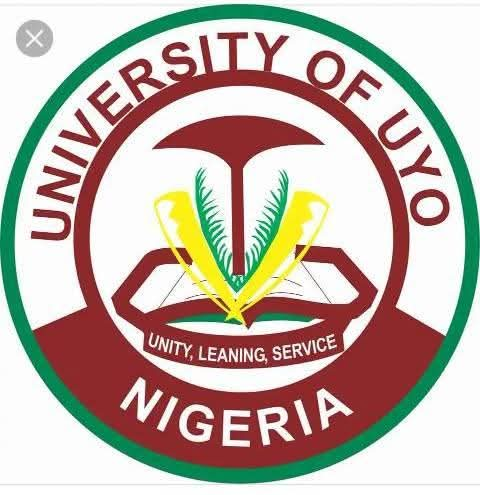The challenge of environmental stewardship is not just about aesthetics; it is about the very health and wellbeing of the people. Over the years, Akwa Ibom State has made impressive strides, evolving from a place with inadequate sanitation infrastructure into a renowned example of cleanliness. This journey is anchored in a clear vision for
environmental conservation, rooted in the objectives of the Ministry of Environment, and borne out in the dedicated work of the Akwa Ibom State Environmental Protection and Waste Management Agency (AKSEPWMA), under the leadership of Dr. Prince Ikim.
The Ministry of Environment in Akwa Ibom carries a responsibility far greater than regulating scenic landscapes. Its mandate: to protect and conserve natural resources and biodiversity, to manage pollution and waste, and to promote environmental sustainability, defines the very future of our communities. By prioritising policy development, public education, and awareness, the ministry ensures that environmental protection becomes a shared responsibility. In a state where flooding, erosion, and climate, change challenges are real threats, these actions are not optional; but existential.
On the ground, AKSEPWMA is the engine that drives our environmental policies and ambitions. Under Dr. Prince Ikim’s leadership, the agency coordinates daily waste collection and disposal across Akwa Ibom, and organizes regular sanitation exercises that unite the government, communities, and individuals in pursuit of a cleaner state. Beyond simply clearing refuse, AKSEPWMA works to desilt drains in order to control flooding; regulates vegetation along public roads, and monitors the air, water, and land for signs of pollution. It also enforces environmental laws, prosecuting defaulters to reinforce accountability, while educating residents through public awareness campaigns.
The agency has also introduced “waste-to-wealth” initiatives: turning waste materials such as plastics, metals, paper, and biodegradable refuse into useful products and fertilizers. These programmes not only reduce the volume of waste but also generate revenue, underscoring the economic value embedded in what most people would consider as trash. This informs why, in the 2024 fiscal year, for instance, the agency recorded a groundbreaking N160,000,000 in internally generated revenue. Same year, the agency received an approved budget of N185,000,000 for overhead expenditure and a total of N5,185,000,000 within the Ministry of Environment and Mineral Resources.
AKSEPWMA was first established under the administration of Governor Victor Attah in 2000. Obviously, the impact was limited by low visibility and weak structural capacity. The tide may have turned when Prince Ikim became chairman in 2018 under the administration of Gov Udom Emmanuel, aligning political will with institutional reforms to begin the true transformation. Since then, the state has made remarkable progress. From 2018 through 2022, Akwa Ibom won the Clean Up Nigeria “Cleanest State” award five consecutive years, a testament to the determination and consistency of its sanitation policies. In December 2023, the state further cemented its status by being declared the cleanest overall in the STONE Pro-Max project for 2018-2023, with a cumulative score of 72 percent.
But despite these laurels, persistent challenges threaten to undermine the gains. Many communities still lack the proper infrastructure necessary for consistent waste disposal; in some neighborhoods, waste collection remains irregular, and refuse piles up in streets and open spaces. Sanitation facilities are inadequate in a number of areas, leading to open defecation, a deeply harmful practice that contaminates soil and water, and contributes to outbreaks of diseases such as cholera and typhoid. The rapid pace of urbanisation and population growth only worsens these problems, increasing the volume of waste generated and stretching our already-strained facilities.
In spite of the humongous funds allocated to the agency, the scale of sanitation needs across Akwa Ibom is vast, yet budgetary allocations often fall short of what is required to build modern systems and maintain existing ones. Without sustained financial backing, agencies like AKSEPWMA cannot fully realize their mandates. Additionally, while AKSEPWMA is enforcing regulations, community participation remains sporadic. Many residents are slow to adopt improved sanitation habits, and in some cases, behaviours such as illegal dumping persist. Without strong grassroots involvement, top-down enforcement can only achieve so much.
To address these challenges, the state must double down on the very models that have brought success thus far. Expanding waste-to-wealth programmes will allow more refuse to be turned into valuable products-recycling plastics and metals, composting organic waste, and producing fertilizers, all while generating revenue. Coupled with that, the government must make serious, sustained investments in sanitation infrastructure, building modern public toilets, efficient drainage systems, and frequent waste-collection networks that reliably reach every local government area, including informal settlements.
Equally important is cultivating community ownership of environmental cleanliness. The government should strengthen its engagement through clean-up clubs, school-based sanitation programmes, and local sanitation corps. It is a commendable gesture to find, in recent times, some local government chairmen leading the charge for environmental sanitation.
When citizens believe in their role and feel a personal responsibility for their surroundings, lasting cultural change can take root. At the same time, policy enforcement must remain robust. AKSEPWMA needs the support to inspect, prosecute, and deter violations effectively.
Again, public-private partnerships can offer a transformative boost.
By leveraging private sector capital and ingenuity, the state can scale its sanitation infrastructure more rapidly than through public funds alone. Partnerships with non-governmental organizations and international development agencies could also help deliver technical expertise and financial resources, making truly sustainable waste management possible.
Our success matters not just for the awards we’ve won or the prestige we enjoy, but for the real, tangible impact on people’s lives. A clean Akwa Ibom is a safer, healthier Akwa Ibom. It is a place where (water-borne) diseases become less common, where flooding no longer ravages homes, and where environmental degradation doesn’t threaten our future. The economic benefits are equally significant: a clean environment can attract investment, boost tourism, and enhance the quality of life for all residents.
The task of keeping Akwa Ibom clean is both a reward and a responsibility. We have come far, but we cannot afford complacency. If we remain vigilant, if we invest in infrastructure, strengthen enforcement, and mobilize our communities, Akwa Ibom can continue to lead not only in cleanliness but in environmental sustainability. Let us not rest on our laurels. Rather, let us renew our commitment together, to preserve our natural heritage, protect our health, and secure a clean, thriving legacy for generations to come. It is everybody’s responsibility to do this.


